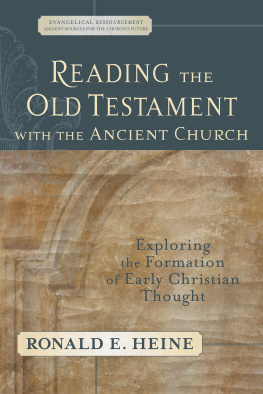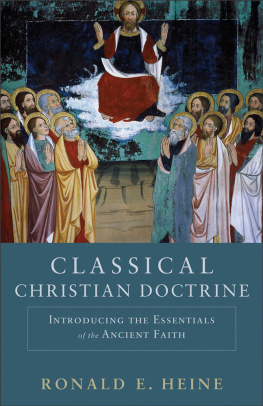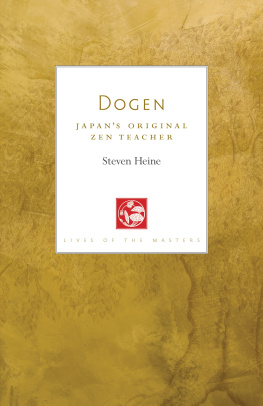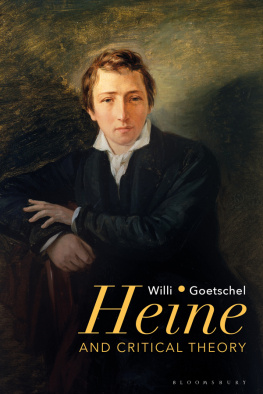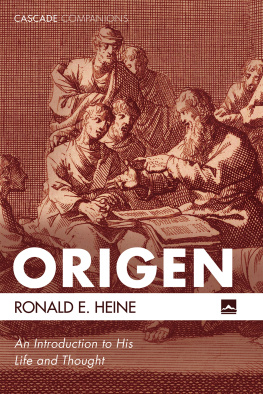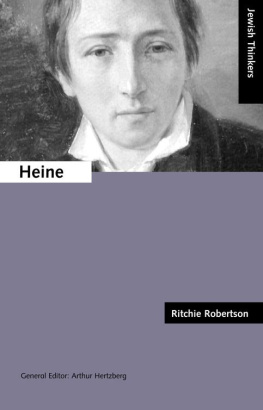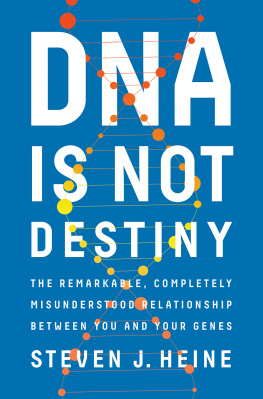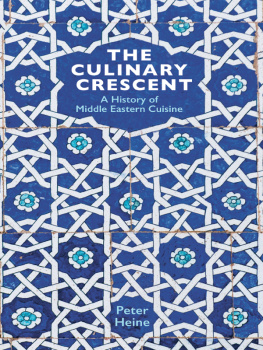Heine - Heine: Selected Verse
Here you can read online Heine - Heine: Selected Verse full text of the book (entire story) in english for free. Download pdf and epub, get meaning, cover and reviews about this ebook. year: 2013, publisher: Penguin Books Ltd, genre: Detective and thriller. Description of the work, (preface) as well as reviews are available. Best literature library LitArk.com created for fans of good reading and offers a wide selection of genres:
Romance novel
Science fiction
Adventure
Detective
Science
History
Home and family
Prose
Art
Politics
Computer
Non-fiction
Religion
Business
Children
Humor
Choose a favorite category and find really read worthwhile books. Enjoy immersion in the world of imagination, feel the emotions of the characters or learn something new for yourself, make an fascinating discovery.

- Book:Heine: Selected Verse
- Author:
- Publisher:Penguin Books Ltd
- Genre:
- Year:2013
- Rating:5 / 5
- Favourites:Add to favourites
- Your mark:
- 100
- 1
- 2
- 3
- 4
- 5
Heine: Selected Verse: summary, description and annotation
We offer to read an annotation, description, summary or preface (depends on what the author of the book "Heine: Selected Verse" wrote himself). If you haven't found the necessary information about the book — write in the comments, we will try to find it.
Heine: Selected Verse — read online for free the complete book (whole text) full work
Below is the text of the book, divided by pages. System saving the place of the last page read, allows you to conveniently read the book "Heine: Selected Verse" online for free, without having to search again every time where you left off. Put a bookmark, and you can go to the page where you finished reading at any time.
Font size:
Interval:
Bookmark:




Here, as in most of his autobiographical writings, we must temper the poetic worth of what he is saying with scepticism as to its factual validity. For Heine was primarily a poet a poet whose popularity has been restricted in his native land by his sharply critical tongue, and is abroad based chiefly on the early lyrics made immortal by the settings of Schubert and Schumann. Yet it is precisely these poems which are least typical of the mature Heine: semi-precious gems of great brilliance though many of them are, and saved from cloying sentimentality by the sharpness of their contours, they mark only a stage through which Heine had to pass in his search for a mature and personal poetic language: it is to the late poems that we must turn to find the authentic blending of imagination and discipline, gaiety and squalor, pain and indomitable courage that makes Heine unique even in a nation of great lyric poets. Heine was born at Dsseldorf in the Rhineland on 13 December, and probably in 1797, the son of a colourful but not particularly efficient or successful Jewish tradesman, and a courageous, stable mother who came from a respected and comfortably placed medical family in Dsseldorf; she was likewise Jewish. Heine in his autobiographical writings paints vivid pictures of his parents especially of his father, with his love of dogs and horses and military display. And it was following the whim of his father, whose great joy in business was the importation of English cloth, that young Heine, the eldest of four children, was called Harry: the name of the Liverpool merchant who supplied Samson Heines business with much of its material.
Dsseldorf was a pleasant little backwater in Heines time, a town of some 15,000 inhabitants; it had a distinguished artistic past, and it was to flourish again in the future. The French occupation of the Rhineland brought civic rights for the Jews, who numbered no more than 300 in Dsseldorf, and did not live in a ghetto; the population was predominantly Catholic, though there were some 2,000 Protestants. Heines parents were not strict Jews; Harry was sent to a dames school, then to a small Jewish school, and at the age of seven to a lyce run mainly by Jesuits. The rector made a considerable impression on Heine: here was a man who perhaps introduced the boy to the conflict between the intellect and religion. For Rector Schallmeyer taught doctrines inspired by the latest French rationalist philosophy and also officiated at divine service. From this we in part trace Heines scepticism: in his own home, too, he saw both spiritual indifference and an observance of Jewish rites.
There was little to disturb the smooth flow of Heines upbringing. The most memorable event was Napoleons entry into Dsseldorf in November 1811; Heine leaves a glowing description in the prose work entitled Ideen. Das Buch Le Grand Le Grand being the drummer from the Grande Arme who was (at least in Heines imagination) billeted on the family. The portrait of the Emperor riding easily along on his great white horse deserves to be set alongside Die Grenadiere as one of the finest literary tributes to the magnetic appeal of Napoleon. Heines mother had practical plans for her son. She thought first that he should become a great soldier, or an administrator of occupied territories; then when Napoleons fortunes began to wane her mind turned to a business career.
It was certainly not from her that Heine inherited his love of legend and fairy story. From an early age he showed a remarkable imagination and a natural ability to clothe his dreams and fantasies in vivid and immediately recognizable forms. Yet for all that he also showed an awareness of reality and a healthy scepticism towards people and things: in the light of his later development it is interesting to note that his earliest surviving poem is a satire directed against a school-fellow. Heine probably first felt his Jewishness in the autumn of 1815 when he and his father went to Frankfurt for the trade fair. Here the Jews still lived in the dark, damp ghetto which he describes so powerfully in the Rabbi von Bacharach fragment. Heine stayed two months in Frankfurt, working at a bankers and then at a grocers, but without success or pleasure.
In the summer of 1816 he went to Hamburg, where his uncle Salomon was one of the most respected merchants of the city. Heine naturally found it difficult to show, and perhaps even to feel, gratitude. For the rest of his life he was to be more or less dependent on the generosity of his uncle (and after his death, on that of his son Karl), yet his attitude towards these Hamburg relations was one of the least attractive sides of his character. They welcomed him kindly, though as the poor relation from the country he scarcely felt at ease a feeling exaggerated by a rebuff when he found himself in love with his pretty young cousin Amalie. It is in Affrontenburg (p. 219) of three decades later that we find the strongest expression of his bitter feelings for this family.
For two years Heine learnt the rudiments of banking from his uncle, who then set him up with a business of his own though Harry Heine & Compagnie was bankrupt within a year. Uncle Salomon now agreed that Heine should study law at his expense. He returned to his parents in May 1819, and in the autumn entered Bonn University on qualifications which would surely be considered insufficient nowadays. During his year in Bonn he went to more lectures on literature than on law, and he was by now busy writing poetry such famous ballads as Die Grenadiere and Belsatzar date from the Bonn period. In the autumn of 1820 he moved on to Gttingen University (of which his Harzreise gives an entertaining satirical picture); he was sent down in January 1821 for wanting to fight a duel with pistols, and he went on to Berlin. The two years in Berlin were a period of leisure and progress he had the entre to some of the leading salons, and from these years date his first two publications in book form.
In the summer of 1823 Heine stayed some weeks with his parents, now at Lneburg; he got to know the sea for the first time during a holiday at Cuxhaven; and he also revisited his uncles family at Hamburg it was during this visit, if at all, that he fell in love, equally in vain, with Amalies younger sister Therese. In January 1824 Heine took up his studies again, once more at Gttingen, and despite the Harz journey which he undertook that summer, and the writing of the book that bears that name in the autumn, he made sufficient progress to be able to graduate doctor of law in July 1825, a month after he had entered the Protestant church (taking the opportunity to change his name from Harry to Heinrich). Prudence rather than conviction lay behind the conversion medicine alone of the higher professions was at that time open to non-baptized Jews. Heine was now twenty-eight, and he was no clearer about the choice of a career than he was on questions of religion, patriotism or poetry. In the coming months he considered a number of different careers lecturer in Berlin, advocate in Hamburg, and later a chair at Munich and the post of syndic in Hamburg. In the end he accepted a job as a political journalist in Munich, but he only kept it for six months.
Font size:
Interval:
Bookmark:
Similar books «Heine: Selected Verse»
Look at similar books to Heine: Selected Verse. We have selected literature similar in name and meaning in the hope of providing readers with more options to find new, interesting, not yet read works.
Discussion, reviews of the book Heine: Selected Verse and just readers' own opinions. Leave your comments, write what you think about the work, its meaning or the main characters. Specify what exactly you liked and what you didn't like, and why you think so.


